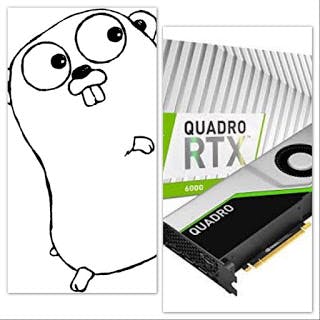11,479 reads
No-stress CUDA programming using Go and C
by
February 14th, 2020
Founder: "pythondrops.com". Full-stack dev/ AI Engineer/ Professional Writer/ M.Sc. Rio de Janeiro
About Author
Founder: "pythondrops.com". Full-stack dev/ AI Engineer/ Professional Writer/ M.Sc. Rio de Janeiro
